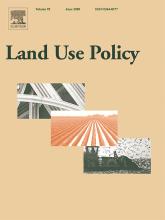Resource information
Municipalities worldwide are confronted with the need to take long-term decisions about ageing water infrastructure in the face of unpredictable future developments. Previous studies on long-term decision making have proposed solutions targeted at the domain of either politics or planning. This study combines insights from the domains of policy, politics, and planning by using the Multiple Streams Framework to explain what enables municipalities to take forward-looking investment decisions. We combine the configurational MSF perspective with an explicitly configurational method namely fuzzy-set qualitative comparative analysis and apply this to 40 cases of Dutch municipalities. We conclude that enabling conditions differ for small versus medium-to-large municipalities. Furthermore, forward-looking investment decisions can be achieved regardless of the municipalities’ organizational analytical capacity. In fact, and contrasting to the requirement of the MSF, not all streams necessarily have to be present for forward-looking decisions to occur. For medium-to-large municipalities, forward-looking investment decisions are stimulated by: (1) the presence of organizational analytical capacity, (2) transactional/networking political leadership in situations without focusing events, or (3) entrepreneurial/transformative political leadership in situations with focusing events. For small municipalities, forward-looking investment decisions are stimulated by networking/interpersonal political leadership combined with the occurrence of focusing events.


